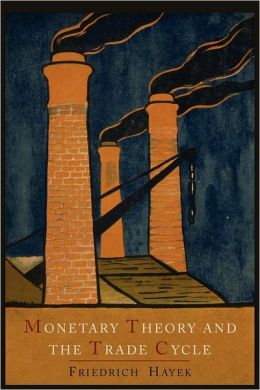Geldtheorie und Konjunkturtheorie. (Beitrage zur Konjunkturforschung, heraus-gegeben vom Österreichisches Institut für Konjunkturforschung, No. 1). Vienna and Leipzig: Hölder-Pichler-Tempsky, 1929/2, xii, 147 pp. (England 1933, Japan 1935, Spain 1936.) Translated into English by Lionel Robbins as Monetary Theory and the Trade Cycle. London: Jonathan Cape, 1933, 244 pp. American edition, New York: Harcourt Brace & Co., 1933. Reprinted New York: Augustus M. Kelley, 1966.
The German essay, of which the following is a translation, represents an expanded version of a paper prepared for the meeting of the Verein für Sozialpolitik, held in Zurich in September 1928, and of some remarks contributed to the discussion at that meeting. Although, in revising the translation, I have made numerous minor alterations and additions (mainly confined to the footnotes), the general course of the argument has been left unchanged. The book, therefore, still shows signs of the particular aim with which it was written. In submitting it to a public different from that for which it was originally intended, a few words of explanation are, perhaps, required.
In Germany, somewhat in contrast to the situation in English-speaking countries, monetary explanations of the trade cycle were always, or at least until quite recently, regarded with some mistrust. One of the aims of this study — one on which an English reader may feel that I have wasted unnecessary energy — was to justify the monetary approach to these problems. But I hope that this more explicit statement of the role of the monetary factor will not be found quite useless, for it is not only a justification of the monetary approach but also a refutation of some oversimplified monetary explanations that are widely accepted. In order to save the sound elements in the monetary theories of the trade cycle, I had to attempt, in particular, to refute certain theories that have led to the belief that, by stabilizing the general price level, all the disturbing monetary causes would be eliminated. Although, since this book was written, this belief has been somewhat rudely shaken by the crisis of 1929, I hope that a systematic examination of its foundations will still be found useful.
Online:
Amazon
Free Online Version

